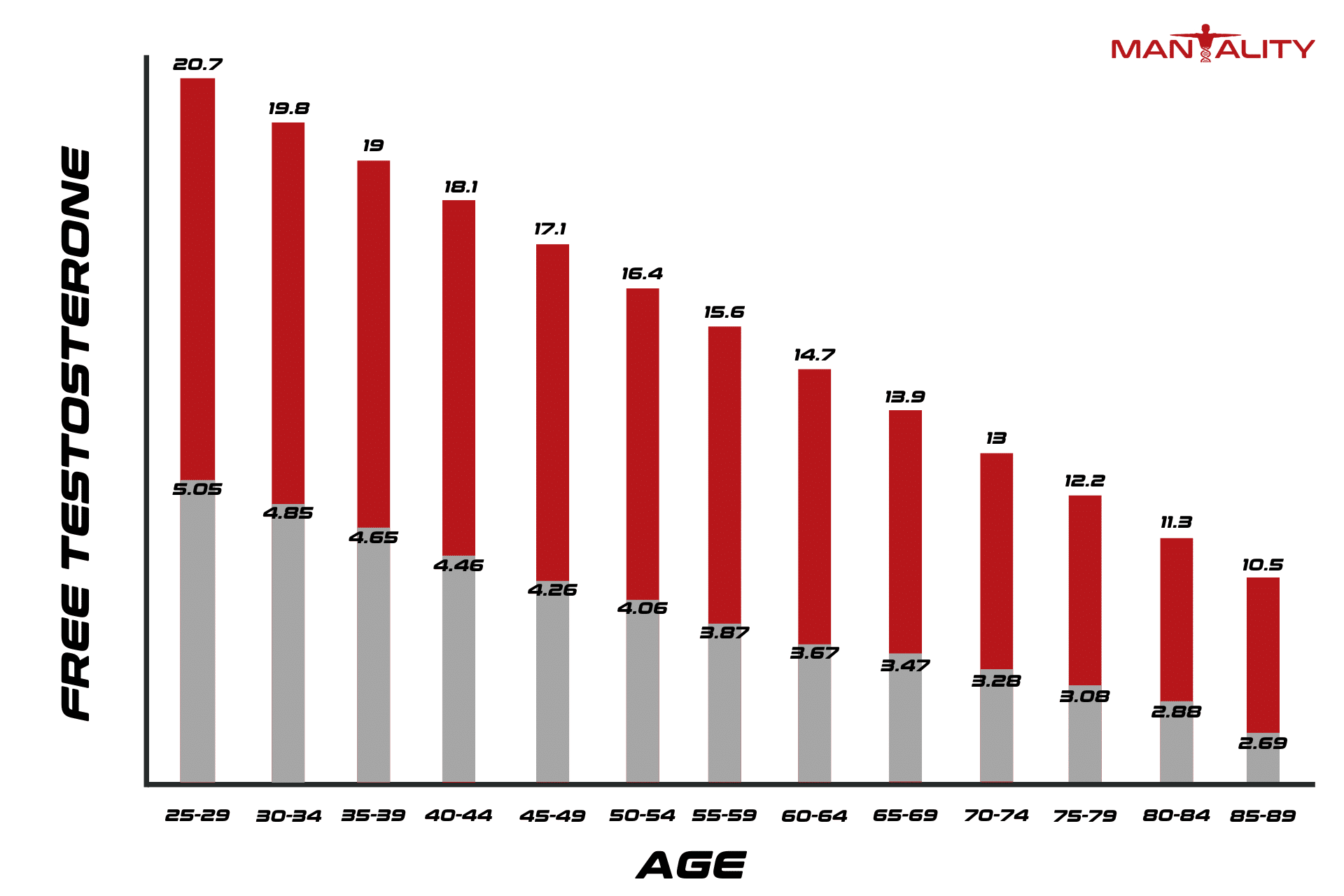Experiencing changes in your body and mood as you get older is natural, but some symptoms might indicate a more significant issue. For many men, declining testosterone levels can lead to various physical and emotional challenges. Testosterone is a vital hormone that influences everything from energy levels to mood stability. Understanding the signs of low testosterone can help you decide if testosterone replacement therapy is the right step for you.
As men age, the gradual decline in testosterone levels may go unnoticed initially. However, the effects can become more apparent and disruptive over time. Common issues like fatigue, decreased muscle mass, and mood swings can significantly affect day-to-day life. Recognizing these signs early can lead to more effective management and treatment options, improving overall quality of life.
Identifying the symptoms of low testosterone is crucial for men aged 35-54 who are experiencing unexplained changes in their physical and emotional well-being. By exploring the common symptoms and understanding when to seek help, you can take proactive steps to address this issue and enhance your health. We aim to guide you through the signs that suggest you might need testosterone replacement therapy, helping you make informed decisions about your health.
Common Symptoms of Low Testosterone in Men
Understanding the common symptoms of low testosterone can help you recognize if you might need testosterone replacement therapy. One of the most noticeable symptoms is a significant drop in energy levels. Men often feel more tired than usual, even after a full night’s sleep. This fatigue can make it difficult to keep up with daily activities and reduce overall productivity.
Another common symptom is reduced libido or sex drive. Men with low testosterone levels might notice a decline in their interest in sexual activities. This change can be distressing and affect relationships. Additionally, low testosterone can lead to difficulties in achieving or maintaining an erection, which can further impact sexual health and confidence.
Men with low testosterone may also experience mood changes. Feelings of depression, irritability, and anxiety are common when testosterone levels are below normal. These emotional shifts can make it harder to enjoy life and maintain personal and professional relationships. Recognizing these symptoms early allows for timely intervention and treatment.
Physical Changes That May Indicate Low Testosterone
In addition to common symptoms, several physical changes can signal low testosterone levels. One such change is a noticeable decrease in muscle mass and strength. Testosterone plays a crucial role in building and maintaining muscle tissue. When levels drop, you may find it harder to keep muscle tone, even with regular exercise.
Another physical sign is an increase in body fat, particularly around the abdomen. Men with low testosterone often see changes in their body composition, with a higher tendency to gain weight and develop a larger waistline. This can be troubling and lead to further health issues if not addressed.
Men might also notice changes in their hair growth patterns. Reduced testosterone levels can result in hair thinning or loss, not just on the scalp but also on the face and body. Additionally, low testosterone can lead to bone density loss, increasing the risk of fractures and osteoporosis. Keeping an eye out for these physical changes can help you identify low testosterone and consider seeking appropriate treatment.
Emotional and Mental Signs of Low Testosterone
Low testosterone doesn’t just affect the body; it can also have a big impact on your emotional and mental well-being. One common sign is changes in your mood. Men with low testosterone often experience increased irritability or anxiety. These changes can make it hard to handle stress and affect relationships with family and friends.
Depression is another emotional symptom to watch for. Men with low testosterone might find themselves feeling sad or hopeless more often. This can make enjoying life and engaging in activities more challenging. Lack of motivation and difficulty concentrating can also be related to low testosterone levels, making everyday tasks seem more daunting.
Cognitive functions like memory and focus might also be affected. If you find it harder to remember things or feel mentally foggy, low testosterone could be a factor. Recognizing these emotional and mental signs is essential for seeking timely help and improving overall well-being.
When to Consider Testosterone Replacement Therapy
Knowing when to consider testosterone replacement therapy (TRT) is crucial. If you experience several of the symptoms mentioned, it might be time to talk to a healthcare provider. They can run tests to check your testosterone levels and help determine if TRT is a good option for you.
Age and lifestyle factors can also influence the decision. Men over 40 are more likely to experience low testosterone, but it can happen earlier due to stress, poor diet, or lack of exercise. If lifestyle changes don’t improve symptoms, TRT might be necessary to restore balance and vitality.
Evaluating the impact of symptoms on your life can guide your decision. If symptoms like fatigue, mood swings, or reduced muscle strength are affecting your daily activities and well-being, TRT could help. The goal is to enhance your quality of life by addressing low testosterone levels effectively and safely.
Conclusion
Understanding the signs of low testosterone is the first step toward finding relief and improving your health. Symptoms like fatigue, changes in body composition, mood swings, and mental fog can significantly impact your quality of life. Being aware of these signs helps you take action and seek the treatment you need.
Testosterone replacement therapy offers a solution for men experiencing these symptoms. By restoring testosterone levels, TRT can improve energy, mood, and overall well-being. However, it’s essential to consult with a healthcare provider to ensure this therapy suits your specific needs.
If you think you might have low testosterone and want to explore treatment options, reach out to Mantality Health. We offer testosterone replacement therapy in St. Louis and can help guide you toward a healthier, more balanced life. Contact Mantality Health today to take the first step in improving your well-being.




